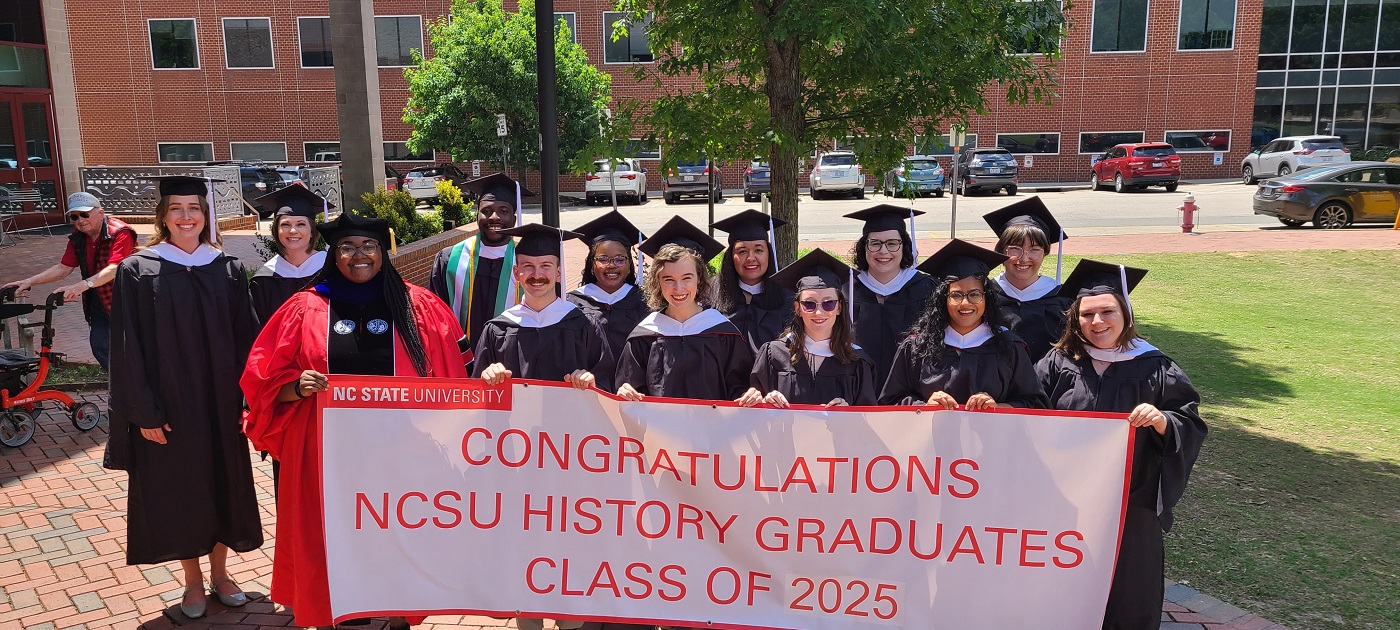Bermuda, Privateers, and My Little Trip to the Big Easy
 When asked why I went to New Orleans this past January, most people assumed I was running from the cold. In reality, even between semesters, I never stop being a student. After all, why stop when researching and presenting take you to beautiful places? After defending my Master’s thesis in May 2017, I was fortunate to research in Bermuda for a second time in July. Here I expanded a section from my thesis, which focused on eighteenth-century Bermudian privateers. Privateering, banned in 1856, allowed a nation’s merchants to arm their private vessels and capture enemy transports or trade vessels. These sea mercenaries, especially in Bermuda, often operated outside of their licensed duties. Such rogue behavior included attacking neutral vessels and plundering cargoes prior to prize adjudication, a system that decided whether or not captures were lawful. Questionable loyalties and freewheeling are as relevant today as they were hundreds of years ago.
When asked why I went to New Orleans this past January, most people assumed I was running from the cold. In reality, even between semesters, I never stop being a student. After all, why stop when researching and presenting take you to beautiful places? After defending my Master’s thesis in May 2017, I was fortunate to research in Bermuda for a second time in July. Here I expanded a section from my thesis, which focused on eighteenth-century Bermudian privateers. Privateering, banned in 1856, allowed a nation’s merchants to arm their private vessels and capture enemy transports or trade vessels. These sea mercenaries, especially in Bermuda, often operated outside of their licensed duties. Such rogue behavior included attacking neutral vessels and plundering cargoes prior to prize adjudication, a system that decided whether or not captures were lawful. Questionable loyalties and freewheeling are as relevant today as they were hundreds of years ago.
 Living in an era of asymmetrical warfare and attacks against civilians, I saw privateering as more than a military tool for imperial nations; it was a violent enterprise that filled the pockets of investors and skilled mariners alike. Today, the history of privateering brings together those researching military, political, and economic history, as well as marine archaeology. As such, when I presented my paper, “Sons of Plunder,” at Phi Alpha Theta’s Biennial Convention in New Orleans, I shared my work with students and faculty from East Carolina University and Stetson University. As broad as Atlantic and maritime history are, young scholars often collaborate and present their work at conferences as panelists. At the January conference, I had planned to present research on Bermuda with my Master’s cohort. While my fellow panelists and I ended up separated into different groups, I was fortunate to present my work alongside graduate students researching early modern warfare. As a result, I learned more about English knights seventeenth-century European politics than I ever anticipated. NC State students should take every opportunity to present research papers from previous semesters, as conferences allow students to network, get feedback from more seasoned scholars, and gain invaluable experience in public speaking. If nothing else, be sure to enjoy local cuisine!
Living in an era of asymmetrical warfare and attacks against civilians, I saw privateering as more than a military tool for imperial nations; it was a violent enterprise that filled the pockets of investors and skilled mariners alike. Today, the history of privateering brings together those researching military, political, and economic history, as well as marine archaeology. As such, when I presented my paper, “Sons of Plunder,” at Phi Alpha Theta’s Biennial Convention in New Orleans, I shared my work with students and faculty from East Carolina University and Stetson University. As broad as Atlantic and maritime history are, young scholars often collaborate and present their work at conferences as panelists. At the January conference, I had planned to present research on Bermuda with my Master’s cohort. While my fellow panelists and I ended up separated into different groups, I was fortunate to present my work alongside graduate students researching early modern warfare. As a result, I learned more about English knights seventeenth-century European politics than I ever anticipated. NC State students should take every opportunity to present research papers from previous semesters, as conferences allow students to network, get feedback from more seasoned scholars, and gain invaluable experience in public speaking. If nothing else, be sure to enjoy local cuisine!
- Categories:


